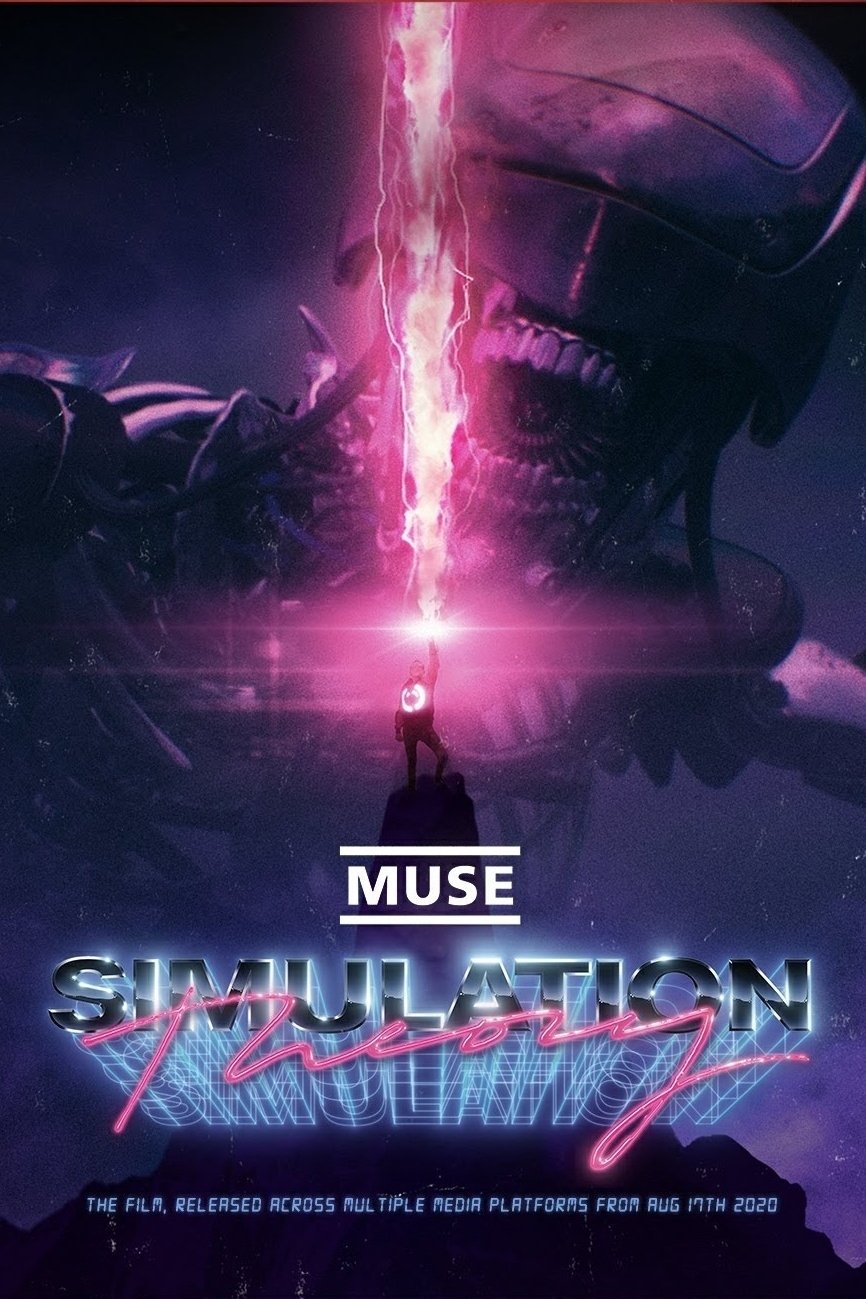
Because hard as this might be to believe, minimalism is still not a concept with which Muse are even remotely acquainted. And of course, even though the disc clocks in at a relatively brief 42 minutes - the shortest album of their career - the super deluxe edition comes with an entire second album of alternate-reality (get it?) versions and remixes (including one song performed with the UCLA Bruin Marching Band).

Even though they swear they didn’t plan it ahead of time, the album is still centred around common SF themes of technology, alienation, alternate reality and humanity (and features a throwback movie-poster cover drawn by the guy who did the art for Stranger Things). So even when the stadium rockers are reining it in, the arrangements, production and instrumentation are still distinctively different and impeccably arranged. Of course, it isn’t all big beats and bigger hooks this is still Muse we’re talking about. And instead of trying to imagine a brave new prog future, they’re drawing on ’80s sounds and styles like synth-pop, new wave and electro-funk - with all the requisite Close Encounters keyboards, synth basses and pad-like drums to match. And instead of those songs being lengthy, multipart epics, they’re short, sweet and self-contained singles for the most part. So what exactly does ‘tone things down’ mean to one of the most challenging bands on the planet? Well, it means that instead of writing and recording an entire album about revolution, thermodynamics or the military, they apparently concentrated on recording one song at a time, taking their lyrical influences from the world around them. After painstakingly crafting a trio of grandly ambitious albums over the past 10 years, the British art-rock trio fronted by singer-guitarist Matt Bellamy supposedly wanted to tone things down for their eighth studio release. With that being said, the lyrics are perhaps one of Simulation Theory’s greatest strengths - but, when they’re drowned out by beats and bass that are reminiscent of the musical fare of a cheap nightclub, one would never know that.Can not having a concept be a concept? It can if you’re Muse. Conceived and filmed in September 2019, Muses Simulation Theory follows a team of scientists as they investigate the source of a paranormal anomaly appearing around the world - releasing a deadly virus.

From the portions of the album in which they are audible, it is apparent that they put forth insightful commentary on the fractured state of the present. The lyrics, then, wind up as a casualty of this as well. Bellamy’s vocal performance is as skillful and unwavering as ever, but tracks such as “Propaganda” and “Break It to Me” find it buried by overproduced soundscapes that feel far too crowded for a three-minute duration. The Bad: Simulation Theory’s dizzying display of electronica often muddles the stylistic strengths that are legitimately there. This allows the ear to organically detect some of the album’s strongest moments of musicianship, such as the strength of Matthew Bellamy’s vocals and the strategic riddling of flavorful guitar licks, and they shine through with ease. Yes, the rock and electronic elements that hallmark the album are present, but they’re not overbearing by any means. “Pressure” and “The Dark Side”, for example, stand out as two of Simulation Theory’s strongest tracks due to their ability to source mastery from subtlety. This is achieved when sonic excess is stripped back, which creates ample breathing room for the nuances of the soundscapes to gradually unfold as opposed to feeling forced and crammed. The Good: Simulation Theory is at its best when it revels in simplicity, allowing the rock and electronic elements to find natural cohesion without one dominating the other.

It is clear from Muse’s past work that they are indeed capable of really delivering, but this time, they just didn’t do so as strongly. Whereas certain songs allow the bevy of nuance that Simulation Theory presents to achieve a natural state of cohabitation, others bombard the ear with excess - forcing the musical duality with a heavy hand rather than letting it naturally manifest. Conceived and filmed in September 2019, Muse’s Simulation Theory follows a team of scientists as they investigate the source of a paranormal anomaly appearing around the world. However, this delicate rock-electronic elixir is executed far more successfully on some tracks than others. The Lowdown: Muse have long dabbled with infusing electronica into the sonic staples of rock, and Simulation Theory, their eighth record, sees the trio lean into that sound more boldly than ever.


 0 kommentar(er)
0 kommentar(er)
